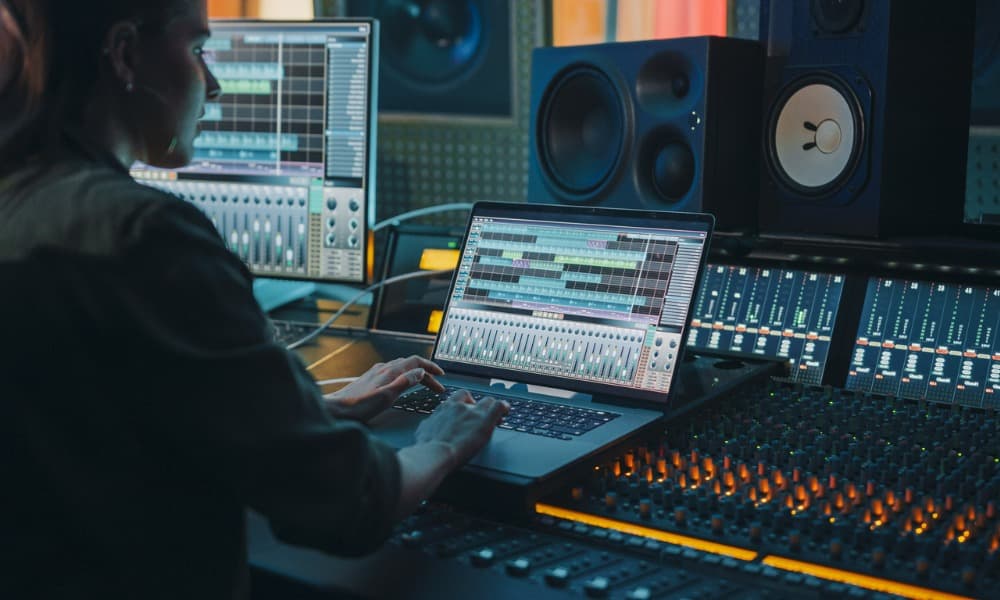
The terms “studio engineer” and “sound engineer” are often used interchangeably, but they refer to distinct roles within the audio production industry. Both professionals play a crucial role in creating high-quality sound for music, film, television, and other media, yet their responsibilities and areas of expertise differ significantly. In this article, we will break down the roles of a studio engineer and a sound engineer, highlighting their key differences and the skills required for each position.
1. The Role of a Studio Engineer
A studio engineer typically works in a recording studio environment, managing all aspects of audio production, from recording to mixing and mastering. They are responsible for overseeing the technical side of recording sessions and ensuring the sound quality of the final product. The role of a studio engineer involves:
A. Recording Audio
Studio engineers are often responsible for recording the performances of musicians, voice actors, or sound designers. They ensure that each audio track is captured cleanly and accurately, using the right microphones and techniques. This involves setting up equipment, adjusting levels, and troubleshooting issues during the recording process.
B. Mixing and Mastering
Once the audio has been recorded, the studio engineer’s job shifts to mixing, where they balance the levels of different tracks, apply effects like reverb or EQ, and create the final soundscape. After mixing, the engineer also handles the mastering process, ensuring the audio is polished and ready for distribution.
C. Equipment Management
Studio engineers are experts in audio equipment, from microphones to digital audio workstations (DAWs) and mixing consoles. They ensure that all gear is functioning properly and that the studio setup is optimal for recording.
2. The Role of a Sound Engineer
A sound engineer, on the other hand, works in a broader range of environments and often focuses on live sound production, broadcast, or post-production for film, television, and other media. The responsibilities of a sound engineer can vary depending on the specific area they work in, but some of the key tasks include:
A. Live Sound Engineering
Sound engineers often work in live environments, such as concerts, theater productions, or events. They manage the sound system, ensuring that the audio is clear, balanced, and projected well to the audience. This includes mixing live audio, adjusting microphone levels, and managing the overall sound system.
B. Broadcast Sound Engineering
In television or radio broadcasts, sound engineers are responsible for capturing and mixing live sound during a show or broadcast. They ensure that the sound is balanced and free from distortion, often working with the camera crew and production team to synchronize sound with visual elements.
C. Post-Production Sound Engineering
In film and television post-production, sound engineers work to create and enhance the audio experience. This may include recording and mixing dialogue, sound effects, and music, as well as syncing sound to video. They also work with sound designers to create unique sound effects for specific scenes.
3. Key Differences Between Studio Engineers and Sound Engineers
A. Focus of Work
- Studio Engineers primarily work in controlled studio environments, focusing on recording, mixing, and mastering audio for music, podcasts, or other audio-based projects.
- Sound Engineers are more versatile, working in live sound production, broadcast, and post-production for film and television.
B. Work Environment
- Studio Engineers spend most of their time in a recording studio, often working with musicians, producers, and vocalists.
- Sound Engineers may work in various settings, including concert halls, theaters, TV stations, film sets, and broadcast studios.
C. Audio Handling
- Studio Engineers are experts in multi-track recording and mixing for music production, handling complex sessions with multiple layers of sound.
- Sound Engineers may specialize in live sound, ensuring clear audio during events, or in post-production, working with foley, ADR, and mixing for film and TV.
4. Skills and Tools Required for Each Role
A. Skills of a Studio Engineer
- Expert Knowledge of DAWs: Studio engineers must be proficient in digital audio workstations like Pro Tools, Ableton Live, and Logic Pro X.
- Microphone Placement: Understanding microphone types and placement is essential for achieving optimal sound during recording.
- Mixing and Mastering: Expertise in balancing tracks and applying audio effects such as EQ, compression, and reverb.
- Audio Troubleshooting: Studio engineers must quickly identify and fix any technical issues with the equipment or recordings.
B. Skills of a Sound Engineer
- Live Sound Management: Sound engineers need to be skilled in managing live sound systems, including speakers, microphones, and amplifiers.
- Signal Flow Knowledge: Understanding how audio signals travel through various pieces of equipment is crucial for troubleshooting and ensuring high-quality sound.
- Post-Production Expertise: For sound engineers working in film and TV, skills in dialogue editing, foley sound creation, and sound mixing are essential.
- Technical Agility: Sound engineers must be able to work in high-pressure environments, particularly in live sound production, where they need to make quick decisions.
5. Overlap and Collaboration
While studio engineers and sound engineers have different areas of focus, their work often overlaps, particularly in post-production and live events. For example, a studio engineer might mix and master a track that will later be used in a film or TV show, requiring collaboration with sound engineers during the final audio design process. In live events, a sound engineer may work alongside a studio engineer who has recorded tracks, ensuring the best possible sound is delivered to the audience.
6. Conclusion
While both studio engineers and sound engineers play essential roles in the audio production process, they specialize in different areas. Studio engineers focus on the controlled environment of a recording studio, working with artists to capture, mix, and master audio. Sound engineers, on the other hand, work in a wide range of environments, from live sound and broadcast to post-production for film and television. Understanding the distinct responsibilities and skill sets of each role can help clarify the difference between the two and highlight the unique contributions they make to the audio industry.
